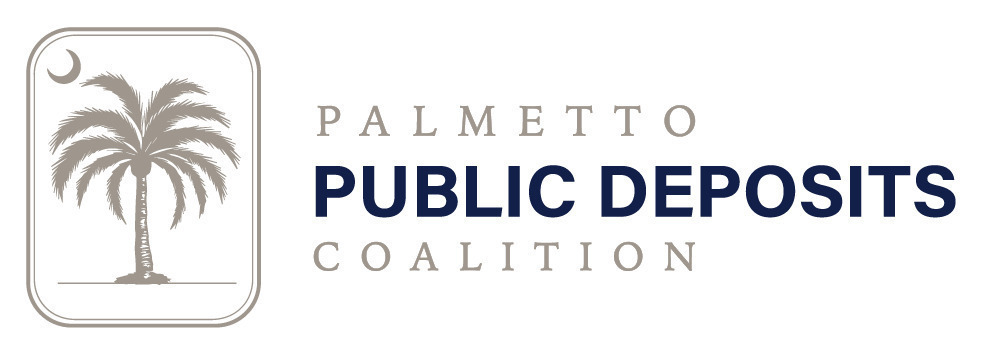Community leaders across South Carolina have come together to announce the launch of the Palmetto Public Deposits Coalition, a statewide initiative focused on empowering communities with the financial freedom they deserve. Currently, local governments do not have a choice on where to deposit taxpayer dollars. The Palmetto Public Deposits Coalition will challenge existing regulations that prevent public entities from depositing taxpayer funds into financial institutions like local credit unions, which can provide higher rates of return on deposits, lower interest rates on loans, and keep more taxpayer money in local communities.
“It is 2024, and public entities in South Carolina deserve to have a choice on where public money is deposited,” said Rick Osbon, former mayor of Aiken, South Carolina, and chairman of the Palmetto Public Deposits Coalition.
Public deposits are the funds government entities hold in financial institutions, including tax revenues, fees paid for government services, and grants from federal or state government programs. Public deposits monetarily support various public services, including infrastructure projects, social programs, operations, and emergency reserves.
Currently, South Carolina law permits only traditional banks to house these public funds.
How government entities safeguard public deposits has become increasingly important as banks depart South Carolina. Local banks have been acquired by national banking institutions, consolidating much of the Palmetto State’s financial assets in out-of-state institutions and leaving communities underserved. A recent analysis of the share of all deposits found that as much as 78% of all deposits in South Carolina’ were held in out-of-state banks in 2023.
In response, local credit unions have stepped in to bridge the gap, offering crucial services such as small business loans, agricultural financing, and home mortgages, helping to support these areas' economic growth and stability. In a ten-year timeframe spanning from 2013 to 2024, there was a net decrease of 233 bank branches across the state compared to a net increase of 24 credit union branches.
Osbon added, "We believe South Carolina local governments and other public entities deserve the ability to choose the type of financial institution where taxpayer dollars are deposited. By creating competition and allowing credit unions to receive public deposits, South Carolina can improve access to essential financial services, drive better returns on taxpayer dollars, and benefit the residents of our state—especially in rural areas of South Carolina where credit unions are a lifeline."
Credit unions typically offer more personalized services, lower fees, and better interest rates on loans and savings. Through the National Credit Union Administration (NCUA), credit unions offer up to $250,000 in deposit insurance per individual per financial institution, the same level traditional banks offer through the Federal Deposit Insurance Corporation (FDIC). Public entities have an obligation to handle taxpayer funds wisely, and creating competition for public deposits would help drive better interest rates, improve services, and strengthen accountability.
Increased competition for public deposits also leads to better results for taxpayers. For every $1,000,000 of public funds deposited in a credit union, the return is $17,113 in total state and local government interest and tax revenue. In contrast, the same amount deposited in a bank yields just $8,750—a difference of $8,363, or a 96% greater net benefit from credit unions.
Recent surveys show that more than 65% of South Carolinians support allowing local governments to deposit funds into credit unions, particularly because these institutions provide the same deposit insurance protections as banks and the added benefit of higher interest rates on taxpayer deposits.
Local governments are at the forefront of their communities and are best suited to identify and address their residents' needs, especially when managing public funds. The Palmetto Public Deposits Coalition is committed to championing the right to free-market choices and ensuring public entities' financial resilience and prosperity across South Carolina.
About Palmetto Public Deposits Coalition
The Palmetto Public Deposits Coalition is an alliance of community leaders, credit unions, and local government associations advocating a more competitive environment for returns on taxpayer dollars to empower South Carolina communities. The coalition is committed to ensuring that public funds are managed responsibly, with the best interests of South Carolina’s communities in mind. To learn more, visit https://www.palmettopublicdeposits.com.
Media Contact
Nick Murray
info@palmettopublicdeposits.com



